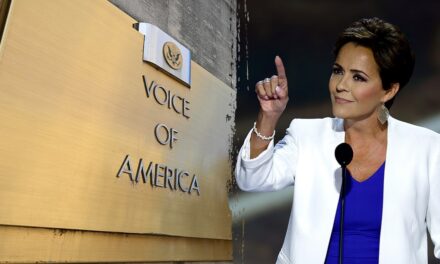William Shatner, the iconic actor best known for his role as Captain James T. Kirk in the “Star Trek” franchise, has stepped beyond the boundaries of entertainment and into the realm of political discourse. Recently, he unveiled what he describes as a ‘counter-offer’ to the leadership and direction of Canada’s new prime minister. This surprising announcement reflects Shatner’s long-standing passion for his home country, revealing an unexpected engagement in national affairs.
As residents of Canada adapt to a new political landscape following the recent elections, Shatner’s comments come at a time when many Canadians are feeling uncertain about the future. With various pressing issues such as climate change, economic recovery, and social justice at the forefront of the national conversation, the contributions of high-profile Canadians like Shatner can be influential. His robust public profile allows him to reach audiences far beyond the typical political sphere.
In his remarks, Shatner emphasized the need for innovative solutions to age-old problems that continue to create division in society. He called for a renewed focus on inclusivity and sustainability within Canada’s political framework, highlighting that his vision encompasses not only the concerns of urban centers but also those of rural communities. Shatner advocates for policies that could help bridge the gap between different segments of the population.
Shatner’s counter-offer suggests a comprehensive approach that might include enhancing technology accessibility in underserved areas, promoting renewable energy projects, and fostering a culture of dialogue and collaboration among community leaders. His proposal is rooted in the idea that forward-thinking policies can transform challenges into opportunities.
Speaking passionately about Canada’s vast natural beauty, Shatner contemplates the balance that must be struck between development and conservation. “We live in a country that is blessed with incredible resources and breathtaking landscapes,” he stated during a recent interview. “We have a responsibility to preserve it for future generations while still allowing for progress and innovation.” Shatner believes that by investing in green technologies and sustainable practices, the government can effectively address climate issues while simultaneously creating jobs and stimulating economic growth.
The actor’s remarks are particularly poignant given the current climate crisis that continues to loom over both Canada and the world. Recent reports indicate that environmental degradation and severe weather patterns have had significant impacts on communities across the country. Shatner’s awareness of this crisis and his willingness to publicly discuss potential solutions position him as a unique voice in the ongoing discourse regarding the environment.
Furthermore, Shatner’s commitment to social justice is clear in his discussions about governance. He argues that it is paramount for the administration to prioritize equity and representation in decision-making processes. “No matter where you live or where you come from, every Canadian should have a voice in shaping our future,” he commented. This assertion reflects a growing demand from citizens for government accountability and transparency. In an age characterized by increased scrutiny of political leaders, Shatner’s demand for a more inclusive political climate resonates deeply with many Canadians.
As an influential figure, Shatner also recognizes the power of community engagement in forging a healthier political environment. He advocates for initiatives that encourage civic participation, such as town hall meetings that facilitate direct dialogue between constituents and their elected officials. He envisions a political culture where the voices of everyday Canadians are not only heard but actively solicited and respected. This underscores the notion that governance should be a collaborative endeavor, rather than a top-down mandate.
In addition to presenting his ideas on policy, Shatner also took the opportunity to reflect on the critical role of arts and culture in uniting diverse populations. He stated that the Canadian identity is enriched by the mosaic of cultures and artistic expressions that define the country. Supporting cultural initiatives can foster understanding and tolerance, thereby acting as a catalyst for social harmony. Shatner’s belief in the unifying power of the arts underlines his broader approach to governance and community building.
Critics of Shatner’s approach might argue that celebrity influence in politics could distract from the essential expertise and experience required to navigate complex governmental challenges. However, Shatner’s rich history, both in front of the camera and as a public advocate, demonstrates his capacity to bridge the gap between entertainment and meaningful societal engagement. His motivations appear to spring from a genuine concern for his fellow Canadians and a desire to utilize his platform for positive change.
The responses to Shatner’s counter-offer have been mixed, reflecting diverse opinions within the Canadian public. Some citizens appreciate the engagement of a beloved figure like Shatner, believing it brings vital visibility to ongoing issues. Others, however, question the efficacy of his proposals without a detailed understanding of the operational logistics involved. This discourse highlights the necessity for public figures to translate their ideas into actionable policies that can realistically be implemented within the governmental framework.
As the new prime minister begins their term, it will be interesting to observe whether they respond to Shatner’s collective call for inclusivity and innovation. The growing trend of public figures speaking out on political matters suggests that the line between entertainment and governance continues to blur. Shatner’s willingness to challenge the status quo is reflective of a broader movement among Canadians who seek to redefine their political engagement in more meaningful ways.
In conclusion, William Shatner’s counter-offer to Canada’s new prime minister opens up a vital conversation about governance, environmental responsibility, and social justice. His advocacy for inclusivity, sustainability, and cultural engagement highlights significant themes within the contemporary political landscape. As Shatner rallies public support for innovative solutions, the hope is that his vision will inspire actionable policies that resonate with Canadians from all walks of life.
Ultimately, the extent to which Shatner’s proposals can influence Canada’s political direction remains to be seen, but one thing is clear: his passionate approach to advocacy serves as a reminder that every voice, regardless of its origin, has the potential to drive change. As debates progress and new policies emerge, Shatner’s engagement will likely continue to spark interest and discussion among both his fans and the broader Canadian populace.
































